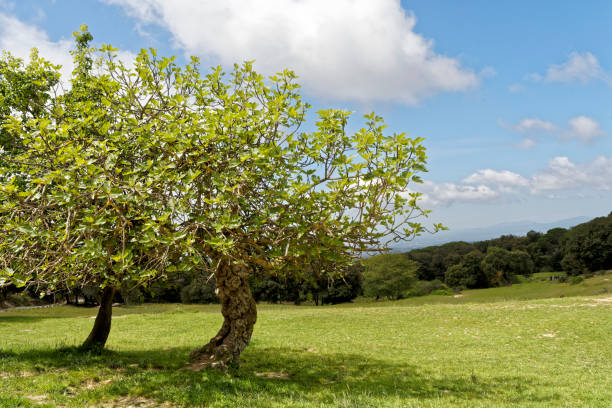PURPOSEFULNESS: A JOURNEY FROM FRUITLESSNESS TO FRUITFULNESS
BY FR VALENTINE NNAMDI EGBUONU, MSP
1st Reading: Ex3:1-8a. 13-15; Psalm: 103. R.v.8a; 2nd Reading: 1Cor10:1-6. 10-12; Gospel: Lk 13:1-9
One of the key elements to a fulfilled life is a sense of purposefulness. Every creature both animate and inanimate was made to serve a purpose. However, what differentiates man from animals and all other inanimate creatures is our ability to discern and choose what really matters amidst the different demands of life. Animals and inanimate creatures don’t have this attribute or proclivity even when they can serve different purposes in life but subject to the discretion of man. For instance, a tree can serve both as a shade and a fruit producer, but it depends on man to choose what he wants from the tree at a given point in time. This is the defining mark of our uniqueness: that sense of purposefulness to know what is needful and what is not.
In the parable of today’s gospel, the owner of the vineyard apparently planted the fig tree to get some fruits from of it; for what is the use of a vineyard without some fruits to show for it? The fig tree wasn’t dead. It was alive putting down roots and taking some water from the soil, some sunlight from the sky, and producing leaves. But it failed in the purpose for which it was planted and the need it was to serve. There was no fig on it. So, any other purpose that this fig tree offered was unimportant to the owner of the vineyard; this was why he wanted to fell the tree. The all-important thing was the fig; a fruit the tree couldn’t produce. Consequently, the tree turned nugatory to the owner.
Isn’t this unimportant growth and effort of the fig tree an axiomatic testament of the paltry activities of man? Is it not indicative of how we expend humongous effort doing the unimportant things? This misdirecting inclination of putting down roots, growing and producing unwanted leaves on things that do not really matter finds us all culpable to a large extent. We spend energy, taking in water from the soil of time and growing in trivial and in unproductive lifestyles. We waste time, energy and resources building extramarital relationships than building our homes. We gamble, soccer-bet, go clubbing, visit pubs and brothels, spend huge fortune on our dogs and pets while we brush aside our poor sick neighbours and the destitute roaming the streets and locations. Sadly, there are pastors who exert caution and ingenuity, spend time and money in building a business and iniquitous relationships than they do in shepherding the flock of Christ entrusted to them. We are no different from this fig tree in today’s gospel.
If this fig tree was imbued with intellect, the very first question it needs to ask itself so as to be extricated from being cut down should be: “For what purpose was I planted?” Perhaps we who can think can begin from there. For us to be productive and bear the necessary fruit that God and the world needs from us, we have to be purposeful in life. We can begin by asking ourselves: “Why am I a father or mother?” “Why am I a Priest?” “Why am I a security officer, a doctor or a student?” A much broader question would be “Why am I here?” or “What are my responsibilities?” These questions can incentivise a positive turn around and set us in motion to a restorative fruitfulness snavelled by the intractable trivialities of the past. Shepherding a flock of sheep was unimportant while God’s chosen people needed a shepherd to save them from slavery. For this reason, God called Moses to revert to his people and do the all-important needful thing. When we veer off the right track, we always have that potency to whip ourselves back into the line.
Lenten period affords us the chance to fettle the rough parts of our life. The one year grace which the orchard owner offered the fig tree reverberates God’s incessant second chance grace to us. This divine action further implies God’s belief that each one of us possesses that spiritual resilience to right our wrongs. So, as we try to overcome that drug addiction, drunkenness, profligacy, pornography, masturbation, immoral relationships and all other unproductive lifestyles, we may not quite come through straight away. This point of not succeeding in trying is very dicey. One can easily give up. But our propulsion should stem from that divine attribute that offers us umpteen opportunities to try again’. If God can give the fig tree (You and I) a year to produce fruit, then we can give ourselves chance after chance to try again when we fail in defeating that ugly part of us.
Meanwhile, if we are not succeeding still, perhaps we just need a gardener to dig about and manure us. It has to be someone unlike our kind. An experienced person or an expert schooled in handling our kind of case. They may help us come through; for God also works through them. Never stop trying. The fig tree’s one-year grace equals our span of life here on earth. Let’s use this opportunity to bear fruit. If not, when we are finally cut down from earthly existence, we shall make a good firewood in the fires of hell.
PRAYER FOR THE DAY
Lord Jesus, manure us to grow out of our unproductive self. Amen.
Happy Third Sunday of Lent




Thank you dear padre for this beautiful reflection.